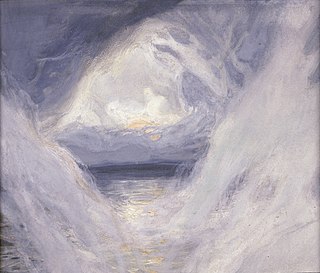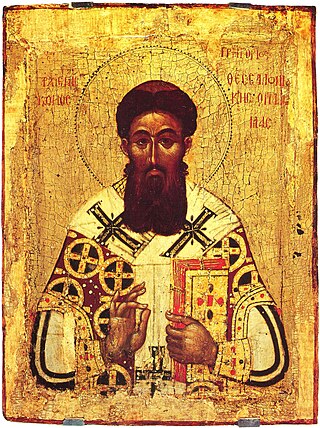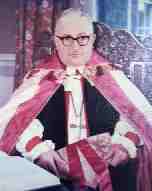Related Research Articles

A creation myth or cosmogonic myth is a type of cosmogony, a symbolic narrative of how the world began and how people first came to inhabit it. While in popular usage the term myth often refers to false or fanciful stories, members of cultures often ascribe varying degrees of truth to their creation myths. In the society in which it is told, a creation myth is usually regarded as conveying profound truths – metaphorically, symbolically, historically, or literally. They are commonly, although not always, considered cosmogonical myths – that is, they describe the ordering of the cosmos from a state of chaos or amorphousness.

Solomon Schechter was a Moldavian-born British-American rabbi, academic scholar and educator, most famous for his roles as founder and President of the United Synagogue of America, President of the Jewish Theological Seminary of America, and architect of American Conservative Judaism.
Theology is the study of religious belief from a religious perspective. More narrowly it is the study of the nature of the divine. It is taught as an academic discipline, typically in universities and seminaries. It occupies itself with the unique content of analyzing the supernatural, but also deals with religious epistemology, asks and seeks to answer the question of revelation. Revelation pertains to the acceptance of God, gods, or deities, as not only transcendent or above the natural world, but also willing and able to interact with the natural world and to reveal themselves to humankind.

Apophatic theology, also known as negative theology, is a form of theological thinking and religious practice which attempts to approach God, the Divine, by negation, to speak only in terms of what may not be said about the perfect goodness that is God. It forms a pair together with cataphatic theology, which approaches God or the Divine by affirmations or positive statements about what God is.

Richard Granville Swinburne is an English philosopher. He is an Emeritus Professor of Philosophy at the University of Oxford. Over the last 50 years, Swinburne has been a proponent of philosophical arguments for the existence of God. His philosophical contributions are primarily in the philosophy of religion and philosophy of science. He aroused much discussion with his early work in the philosophy of religion, a trilogy of books consisting of The Coherence of Theism, The Existence of God, and Faith and Reason.

William Lane Craig is an American analytic philosopher, Christian apologist, author, and Wesleyan theologian who upholds the view of Molinism and neo-Apollinarianism. He is a professor of philosophy at Houston Christian University and at the Talbot School of Theology of Biola University.

The Cairo Geniza, alternatively spelled Genizah, is a collection of some 400,000 Jewish manuscript fragments and Fatimid administrative documents that were kept in the genizah or storeroom of the Ben Ezra Synagogue in Fustat or Old Cairo, Egypt. These manuscripts span the entire period of Middle-Eastern, North African, and Andalusian Jewish history between the 6th and 19th centuries CE, and comprise the largest and most diverse collection of medieval manuscripts in the world.
Metaphysical naturalism is a philosophical worldview which holds that there is nothing but natural elements, principles, and relations of the kind studied by the natural sciences. Methodological naturalism is a philosophical basis for science, for which metaphysical naturalism provides only one possible ontological foundation. Broadly, the corresponding theological perspective is religious naturalism or spiritual naturalism. More specifically, metaphysical naturalism rejects the supernatural concepts and explanations that are part of many religions.

In Hinduism, the concept of God varies in its diverse religio-philosophical traditions. Hinduism comprises a wide range of beliefs about God and Divinity, such as henotheism, monotheism, polytheism, panentheism, pantheism, pandeism, monism, agnosticism, atheism, and nontheism.
The problem of religious language considers whether it is possible to talk about God meaningfully if the traditional conceptions of God as being incorporeal, infinite, and timeless, are accepted. Because these traditional conceptions of God make it difficult to describe God, religious language has the potential to be meaningless. Theories of religious language either attempt to demonstrate that such language is meaningless, or attempt to show how religious language can still be meaningful.
David Frank Ford is an Anglican public theologian. He was the Regius Professor of Divinity at the University of Cambridge, beginning in 1991. He is now an Emeritus Regius Professor of Divinity. His research interests include political theology, ecumenical theology, Christian theologians and theologies, theology and poetry, the shaping of universities and of the field of theology and religious studies within universities, hermeneutics, and interfaith theology and relations. He is the founding director of the Cambridge Inter-Faith Programme and a co-founder of the Society for Scriptural Reasoning.

The Bridgewater Treatises (1833–36) are a series of eight works that were written by leading scientific figures appointed by the President of the Royal Society in fulfilment of a bequest of £8000, made by Francis Henry Egerton, 8th Earl of Bridgewater, for work on "the Power, Wisdom, and Goodness of God, as manifested in the Creation."

Francis Crawford Burkitt was an English theologian. As Norris Professor of Divinity at the University of Cambridge from 1905 until shortly before his death, Burkitt was a sturdy critic of the notion of a distinct "Caesarean Text" of the New Testament put forward by B. H. Streeter and others.

Ian Thomas Ramsey was a British Anglican bishop and academic. He was Professor of the Philosophy of Religion at the University of Oxford, and Bishop of Durham from 1966 until his death in 1972. He wrote extensively on the problem of religious language, Christian ethics, the relationship between science and religion, and Christian apologetics. As a result, he became convinced that a permanent centre was needed for enquiry into these inter-disciplinary areas; and in 1985 the Ian Ramsey Centre for Science and Religion at the University of Oxford was set up to promote discussion on the problems raised for theology and ethics by developments in science, technology and medicine.

Agnes Smith Lewis (1843–1926) and Margaret Dunlop Gibson (1843–1920), nées Smith, were English Semitic scholars and travellers. As the twin daughters of John Smith of Irvine, Ayrshire, Scotland, they learned more than 12 languages between them, specialising in Arabic, Christian Palestinian Aramaic, and Syriac, and became acclaimed scholars in their academic fields, and benefactors to the Presbyterian Church of England, especially to Westminster College, Cambridge.
Theopoetics in its modern context is an interdisciplinary field of study that combines elements of poetic analysis, process theology, narrative theology, and postmodern philosophy. Originally developed by Stanley Hopper and David Leroy Miller in the 1960s and furthered significantly by Amos Wilder with his 1976 text, Theopoetic: Theology and the Religious Imagination.
Jonathan Lee Kvanvig is Professor of Philosophy at Washington University in St. Louis.
Peter W. Ochs is the Edgar M. Bronfman Professor of Modern Judaic Studies at the University of Virginia, where he has served since 1997. He is an influential thinker whose interests include Jewish philosophy and theology, modern and postmodern philosophical theology, pragmatism, and semiotics. Ochs coined the term "scriptural reasoning" and is the co-founder of the Society for Scriptural Reasoning, which promotes interfaith dialog among Christians, Jews, and Muslims through scriptural study groups. He is also a co-founder of the Children of Abraham Institute, which promotes interfaith study and dialog among members of the Abrahamic religions.
Atharism or Atharī theology, otherwise referred to as Traditionalist theology or Scripturalist theology, is one of the main Sunni schools of Islamic theology which is more strict in adherence to the Quran and Sunnah. it emerged as a school of theology in the late 8th century CE from the scholarly circles of Ahl al-Hadith, an early Islamic religious movement that rejected the formulation of Islamic doctrine derived from rationalistic Islamic theology (kalām) in favor of strict textualism in interpreting the Quran and the ḥadīth. The name derives from "tradition" in its technical sense as a translation of the Arabic word athar. Its adherents are referred to by several names such as "Ahl al-Athar", "Ahl al-Hadith", etc.

A deity or god is a supernatural being considered to be sacred and worthy of worship due to having authority over the universe, nature or human life. The Oxford Dictionary of English defines deity as a god or goddess, or anything revered as divine. C. Scott Littleton defines a deity as "a being with powers greater than those of ordinary humans, but who interacts with humans, positively or negatively, in ways that carry humans to new levels of consciousness, beyond the grounded preoccupations of ordinary life".
References
- ↑ "Birthdays". The Guardian. 16 May 2014. p. 37.
- ↑ "Somerville Alumna to Discuss the Trinity on BBC Radio 4". www.some.ox.ac.uk. 6 August 2015. Retrieved 24 November 2018.
- ↑ Soskice, Janet (14 November 2013). "Listen to Half the World". The Tablet. Retrieved 16 March 2014.
- ↑ "Professor Janet Soskice". University of Cambridge Faculty of Divinity. 22 July 2013. Retrieved 16 March 2014.
- ↑ Alexander, Caroline (1 September 2009). "Two of a Kind". The New York Times. Retrieved 16 March 2014.
- ↑ Soskice, Janet (28 June 2009). "Finding God in the Shower". The Guardian. Retrieved 16 March 2014.